THE ROOT YOU PULLED OUT IS NOT A HOLE IN MY COUNTRY, IT IS A TUNNEL ▪︎ Daniela Ortiz
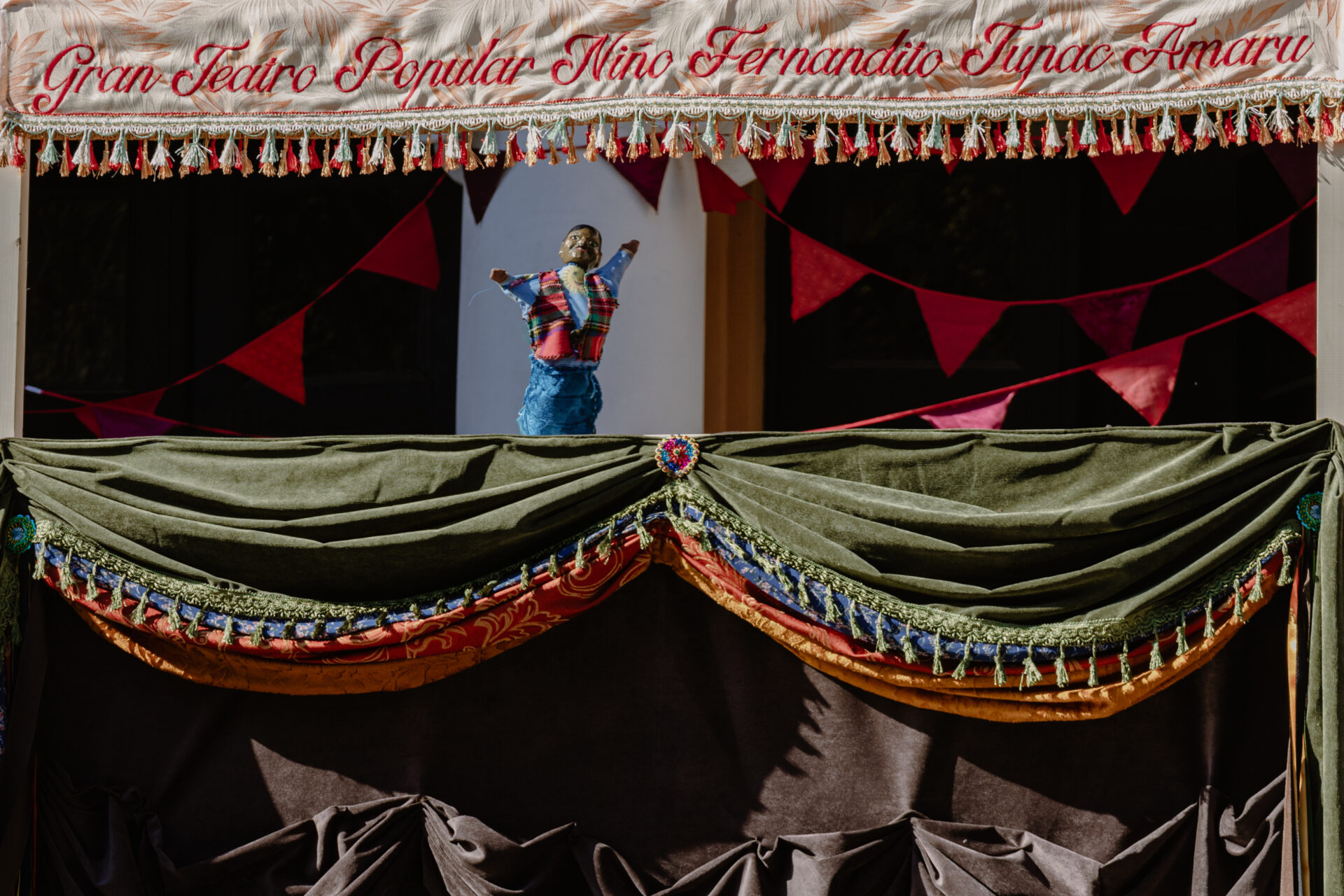
The current global social crisis caused by the warlike and expansionist strategies of the leading powers definitely means a state of permanent chaos. Wars as the dominant cause of multiple anxieties, sufferings, persecutions and migrations bring money, and the dead bodies of those disenfranchised become the new currency. This kind of necropolitical order takes its most perfidious form in the genocide that the sovereign state of Israel is carrying out against the Palestinian people.
Despite various peace efforts (like the Madeleine flotilla or the global march or convoy to Gaza), the machinery of death does not stop, suggesting the unstoppability of one and the same centuries-old imperialist and colonial patterns.
Therefore, the puppet show by the artist Daniela Ortiz The root you pulled out is not a hole in my country, it is a tunnel premiered as part of the 60th October Salon is an absolutely relevant response to the mentioned context. The media of the puppet theater, which can easily be placed anywhere in the public space, figures as a powerful satire of the contemporary moment. Initially written in English, for the needs of the Belgrade premiere, the text of the play was translated and in a certain way updated in relation to the local context.
Precisely for the reason of Serbia’s unequivocal support for Israel, by exhibiting this work, which is in the October Salon Collection, in direct agreement with the artist, the Cultural Center of Belgrade is stepping into the public space, expressing solidarity with the Palestinian people in condemning the genocide and the silence that this topic often causes in the local and global context in the hope that humanity has not disappeared.
Vladimir Bjelicic
curator of the Podroom Gallery
—
The artist’s statement:
Since the end of the 1980s and through the liberal discourse of the End of History and the legal mechanisms of the so-called “fight against terrorism” militants and political organizations of the anti-imperialist resistance have been put underground in our reality; to the tunnels of resistance, to the prisons and dungeons of power, to clandestinity after persecution, to mass graves and cemeteries, like a seed, they are now buried under the earth, and from there prepared to nourish and make grow the struggles against the contemporary colonial order.
The long history of persecution against anti-imperialist organizations since the mid-twentieth century has sought to silence by force a generation of militants, has attempted to erase their knowledge and experiences from the collective memory, has sought to break the thread of transmission from these anti-colonial political and ideological ancestors to the current generations that seek to confront the capitalist/colonial current order.
The root you pulled out is not a hole in my land, it is a tunnel is a puppet theatre piece that tells of the resistance of anti-colonial and anti-imperialist struggles of the 20th century from underground, which power believes it has defeated. They wanted to bury us but they did not know that we were seeds, they wanted to uproot us but they did not know that our roots left holes there, and that those deep holes in our land are now our tunnels.
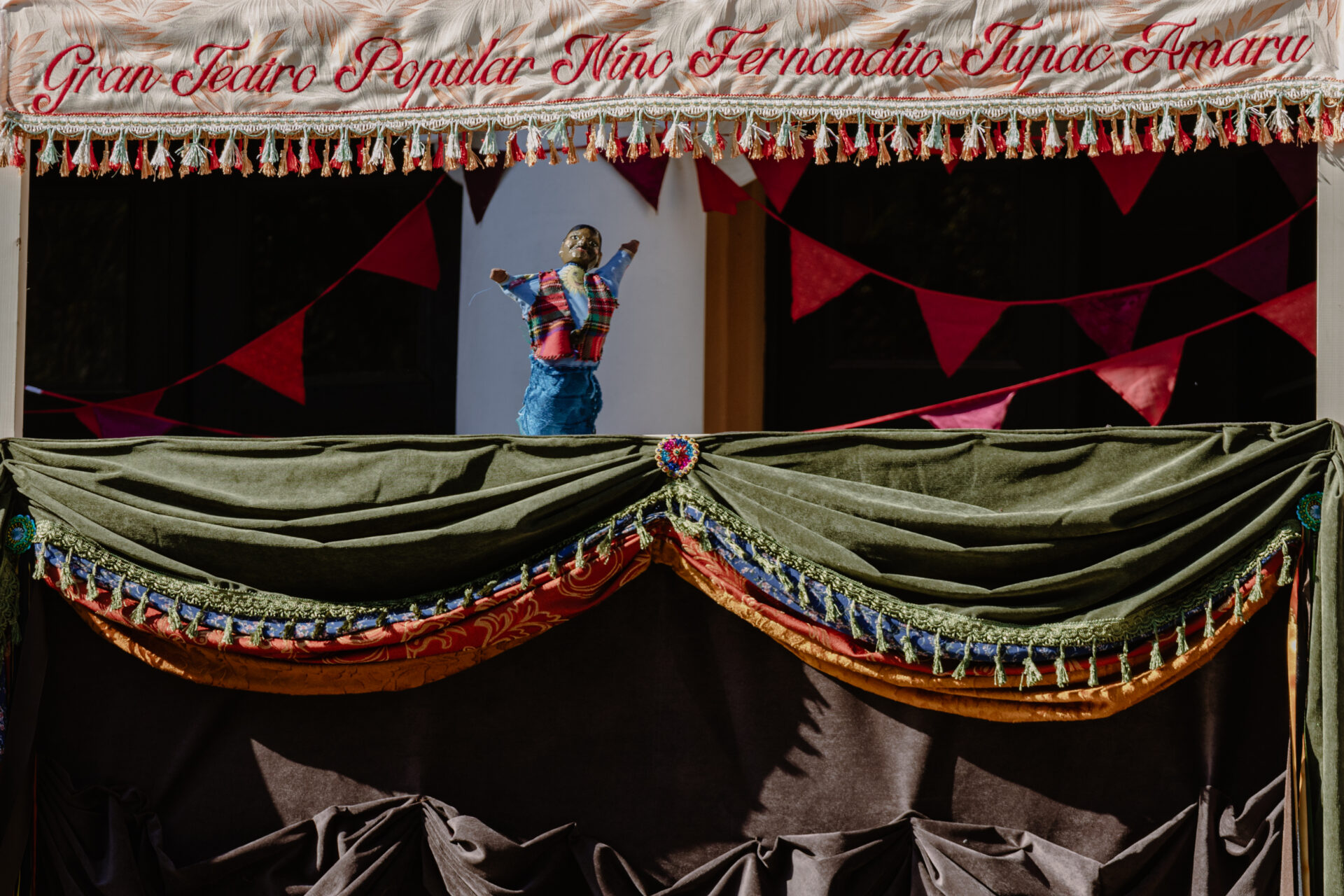

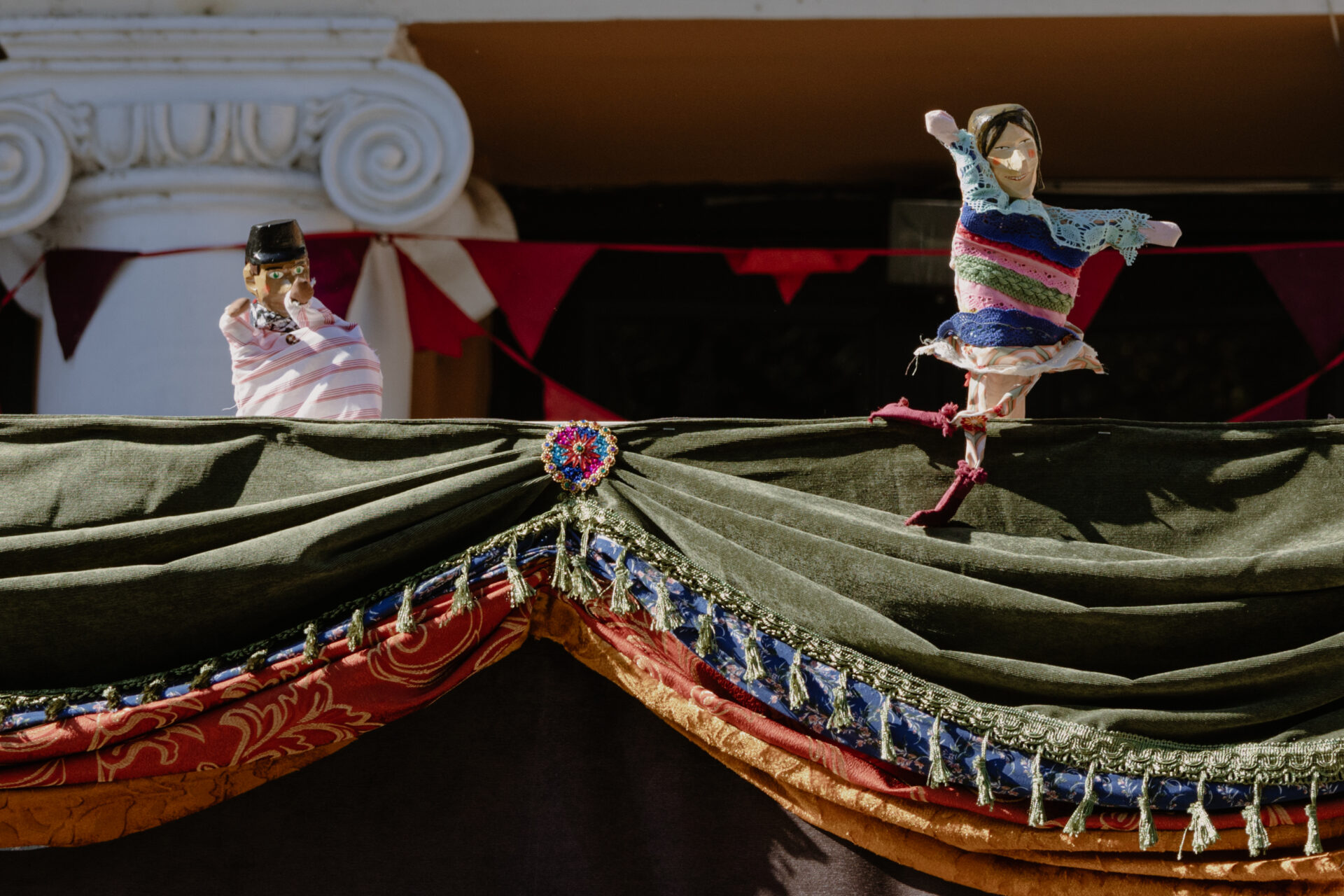
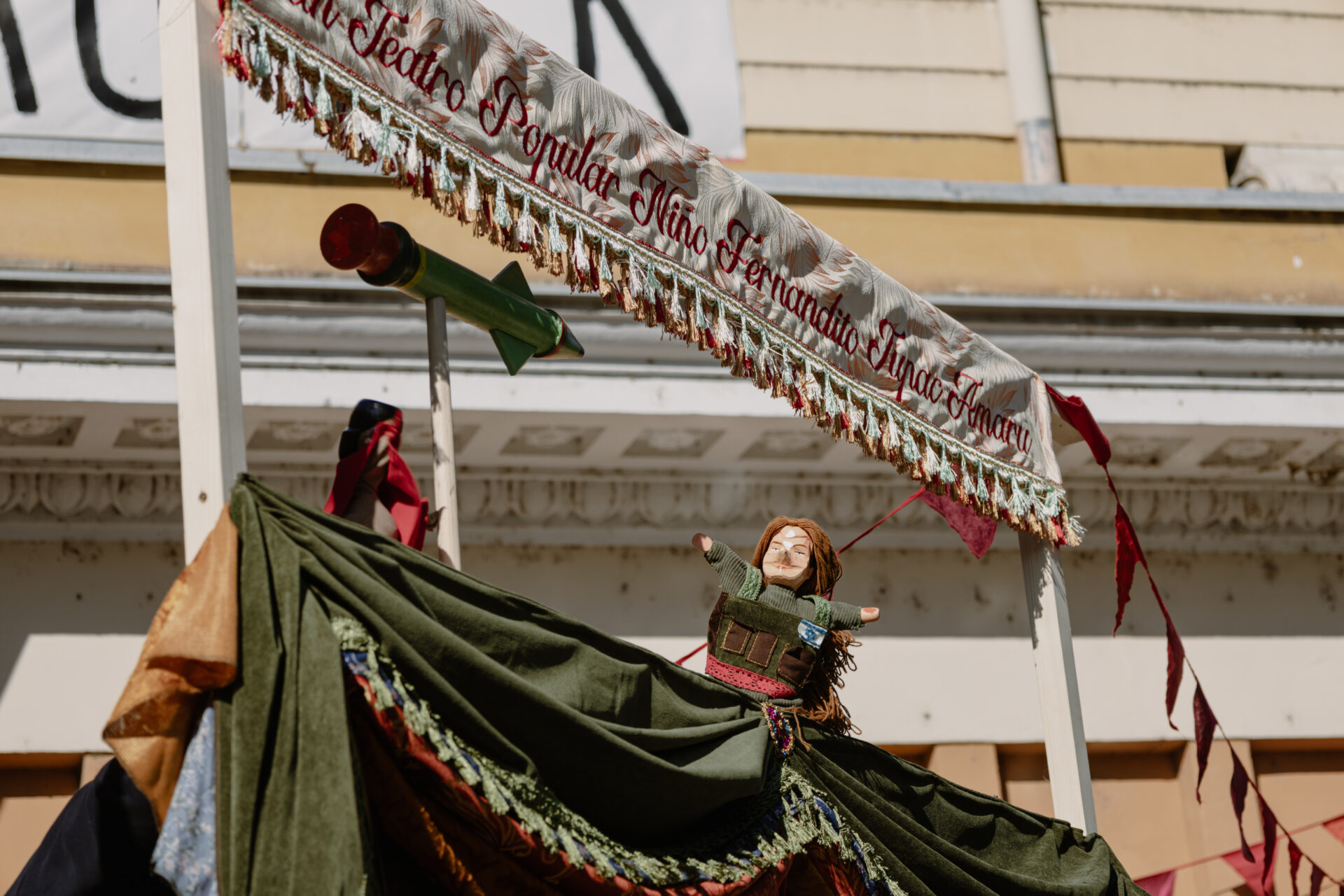
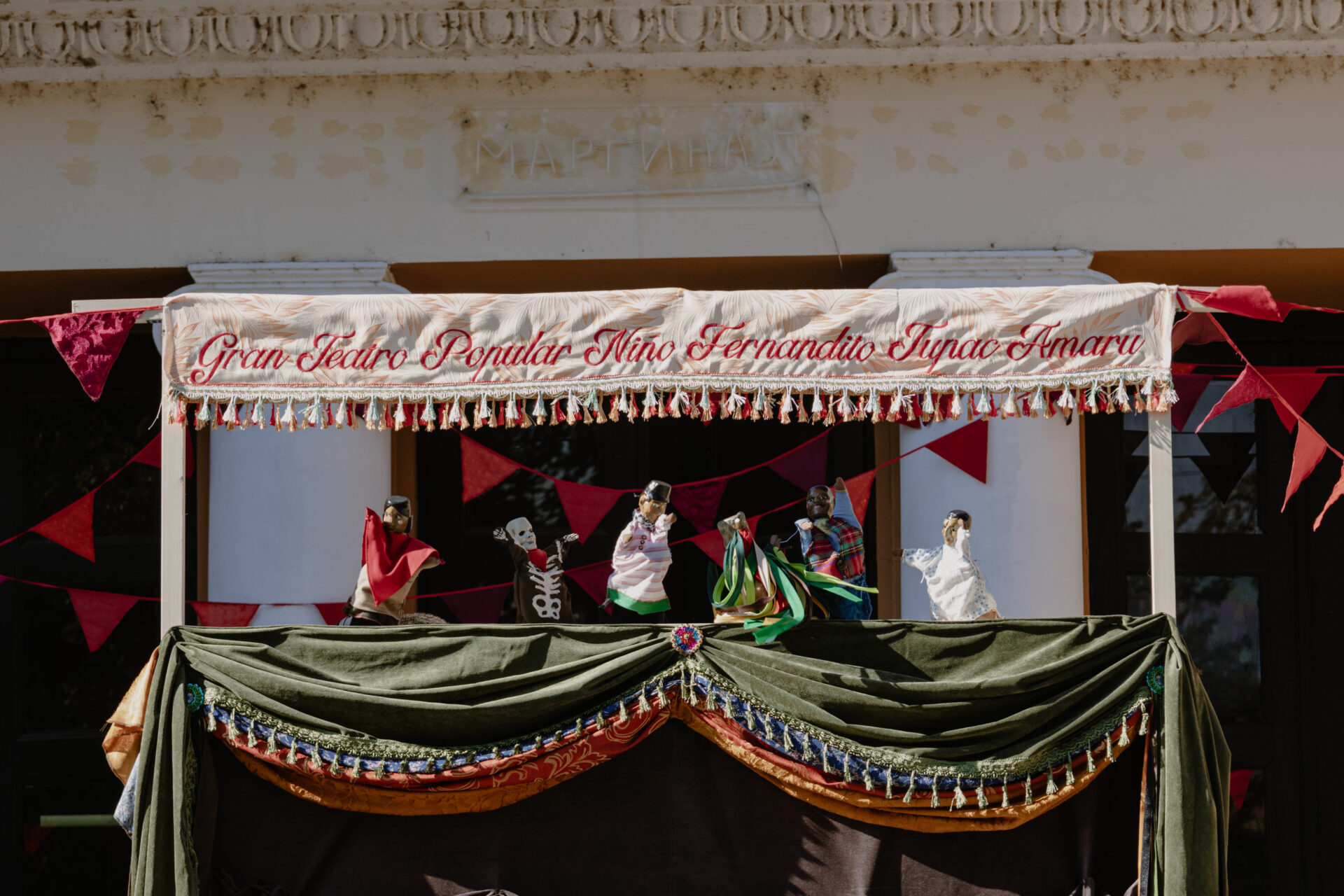
Daniela Ortiz (Peru, 1985) lives and works in Urubamba. Through her work she aims to generate visual narratives in which the concepts of nationality, racialization, social class and genre are explored in order to critically understand structures of colonial, patriarchal and capitalist power. Her recent projects and research revolve around the European migratory control system, its links to colonialism and the legal structure created by institutions in order to inflict violence towards racialized communities, while revindicating the resistances against them. Since her return to Peru she has developed works in regard to internationalist solidarity and care, struggles against extractivism as well as revolutionary processes for defending the access to land. She has also produced projects about the Peruvian upper class and its exploitative relationship with domestic workers.
Recently her artistic practice has turned back into visual and manual work, developing art pieces in ceramic, painting, puppets, collage and in formats such as children books in order to take distance from eurocentric conceptual art aesthetics. Besides her artistic practice, she is a mother of three children, she gives talks, workshops, and participates in various discussions and struggles against the European migratory control system, imperialism, institutional racism and the judicialization of motherhood.